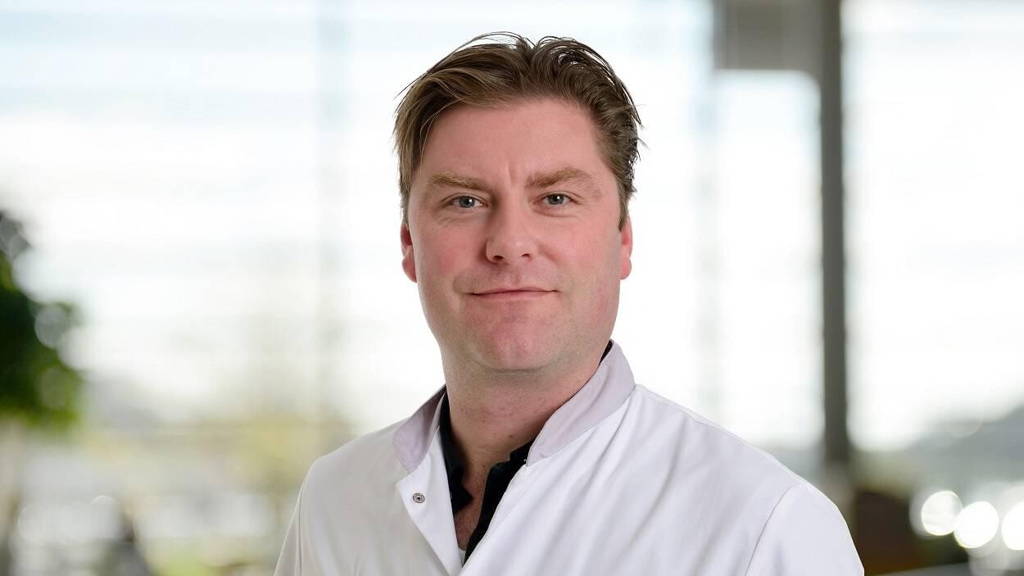The MEDAL-C study, which stands for “Monitoring Early Discharge After Laparoscopic-Colorectal surgery,” allows willing patients, up to 80 years old, to return home the day after a planned colorectal surgery. Once discharged, patients are closely monitored through telemonitoring at home. During the study, a hospital bed is kept available as a precaution, and patients are considered on leave rather than officially discharged for three days after the operation.
Testing reliable equipment through self-experimentation
To ensure accurate monitoring, reliable equipment that effectively transmits data to healthcare providers is crucial. Emiel and his project team personally tested various sensors from different suppliers. They attached the sensors to themselves, linking them to their phones, and went about their daily routines, including working, sleeping, and walking. The following day, they verified whether all data was successfully transmitted to the hospital. They even checked for any allergic reactions caused by the adhesive used to attach the sensors.
While patients are typically closely monitored in the hospital, home monitoring demands continuous and stable data transmission. Emiel selected Masimo technology due to its capability to measure crucial vital signs such as temperature, blood pressure, oxygen levels, and heart rate. The technology also enabled the project team to set customized alarm thresholds to receive notifications if any values deviated from expected ranges. This way, they could promptly contact the patients if necessary.
Collaboration and innovation in equipment selection
Emiel and his team received assistance from the hospital’s innovation platform (I-Team) and engineer Robert van der Westen from TU Eindhoven. They compiled a list of essential and desirable parameters to monitor and then searched for suitable sensors for the study. The primary objective was to detect complications in vulnerable patients early, allowing timely intervention and hospital readmission if required. To achieve this, they conducted thorough research on which values could serve as reliable predictors for complications through telemonitoring.
Before admission, patients were informed about the option of telemonitoring, and they had the choice to participate. To be eligible, they needed to have a smartphone and live within a 30-kilometer radius of the hospital, with means of transportation to the hospital if necessary. The majority of the process is carried out by a team of nurses, who act as excellent ambassadors for telemonitoring and provide patients with comprehensive explanations.
As of early July, 32 patients have been connected to the Masimo system for the study. Out of these, 20 patients were discharged after surgery and went home, while the remaining 12 preferred to stay in the hospital. Of the discharged patients, five were called back due to specific reasons, including medication adjustments and technical issues. The team is optimistic about obtaining conclusive results once 60 patients have participated in the study, anticipated to be achieved in September or October.
Conclusion
The MEDAL-C study led by Emiel Verdaasdonk explores the potential of telemonitoring to enhance patient recovery after colorectal surgery. With the use of reliable equipment and continuous data transmission, this innovative approach aims to ensure patient safety and well-being while reducing the strain on healthcare personnel and resources. As the study progresses, the results are expected to shed light on the benefits of telemonitoring in the broader context of patient care.
Curriculum Vitae – Emiel Verdaasdonk
Emiel Verdaasdonk is a colorectal and oncological surgeon at Jeroen Bosch Hospital in the Netherlands. In addition to his expertise in surgery, Emiel possesses a technical background. Following his medical studies, he pursued a Ph.D. at the Delft University of Technology. Emiel’s keen interest lies in the realm of technology, making his work as a surgeon particularly intriguing. He frequently utilizes robotic-assisted procedures and is passionate about all aspects of medical technology. His commitment to exploring innovations in healthcare reflects his desire to enhance patient outcomes and revolutionize medical practices through the incorporation of cutting-edge technology.







